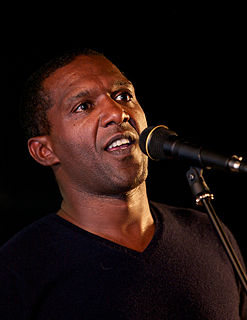A Quote by Gilbert K. Chesterton
And it did for one wild moment cross my mind that, perhaps, those might not be the very best judges of the relation of religion to happiness who, by their own account, had neither one nor the other.
Related Quotes
Into this wild Abyss/ The womb of Nature, and perhaps her grave--/ Of neither sea, nor shore, nor air, nor fire,/ But all these in their pregnant causes mixed/ Confusedly, and which thus must ever fight,/ Unless the Almighty Maker them ordain/ His dark materials to create more worlds,--/ Into this wild Abyss the wary Fiend/ Stood on the brink of Hell and looked a while,/ Pondering his voyage; for no narrow frith/ He had to cross.
Only look to Jesus. He died for you, died in your place, died under the frowns of heaven, that we might die under its smile. Regard neither unbelief nor doubt. Fear neither sin nor hell. Choose neither life nor death. All these are swallowed up in the immensity of Christ and are triumphed over in His cross.
The "establishment of religion" clause of the First Amendment means at least this: Neither a state nor the Federal Government can set up a church. Neither can pass laws which aid one religion, aid all religions, or prefer one religion over another. Neither can force nor influence a person to go to or to remain away from church against his will or force him to profess a belief or disbelief in any religion.
All that was neither a city, nor a church, nor a river, nor color, nor light, nor shadow: it was reverie. For a long time, I remained motionless, letting myself be penetrated gently by this unspeakable ensemble, by the serenity of the sky and the melancholy of the moment. I do not know what was going on in my mind, and I could not express it; it was one of those ineffable moments when one feels something in himself which is going to sleep and something which is awakening.
I wish neither to possess nor to be possessed. I no longer covet 'paradise'. More important, I no longer fear 'hell'. The medicine for my suffering I had within me from the very beginning but I did not take it. My ailment came from within myself, but I did not observe it, until this moment. Now I see that I will never find the light unless, like the candle, I am my own fuel, consuming myself.
In the Cross is salvation; in the Cross is life; in the Cross is protection against our enemies; in the Cross is infusion of heavenly sweetness; in the Cross is strength of mind; in the Cross is joy of spirit; in the Cross is excellence of virtue; in the Cross is perfection of holiness. There is no salvation of soul, nor hope of eternal life, save in the Cross.
Perhaps that's what I feel, an outside and an inside and me in the middle, perhaps that's what I am, the thing that divides the world in two, on the one side the outside, on the other the inside, that can be as thin as foil, I'm neither one side nor the other, I'm in the middle, I'm the partition, I've two surfaces and no thickness, perhaps that's what I feel, myself vibrating, I'm the tympanum, on the one hand the mind, on the other the world, I don't belong to either.
One great question underlies our experience, whether we think about
it or not: what is the purpose of life? From the moment of birth
every human being wants happiness and does not want suffering.
Neither social conditioning nor education nor ideology affects this.
>From the very core of our being, we simply desire contentment.
Therefore, it is important to discover what will bring about the
greatest degree of happiness.
She had lived in that house fourteen years, and every year she had demanded of John that she be given a pet of some strange exotic breed. Not that she did not have enough animals. She had collected several wild and broken animals that, in a way, had become exotic by their breaking. Their roof would have collapsed from the number of birds who might have lived there if the desert hadn't killed three- quarters of those that tried to cross it. Still every animal that came within a certain radius of that house was given a welcome-the tame, the half born, the wild, the wounded.
Where there is Love and Wisdom, there is neither Fear nor Ignorance.
Where there is Patience and Humility, there is neither Anger nor Annoyance.
Where there is Poverty and Joy, there is neither Cupidity nor Avarice.
Where there is Peace and Contemplation, there is neither Care nor Restlessness.
Where there is the Fear of God to guard the dwelling, there no enemy can enter.
Where there is Mercy and Prudence, there is neither Excess nor Harshness.
Fear destroys intimacy. It distances us from each other; or makes us cling to each other, which is the death of freedom.... Only love can create intimacy, and freedom too, for when all hearts are one, nothing else has to be one--neither clothes nor age; neither sex nor sexual preference; race nor mind-set.






































